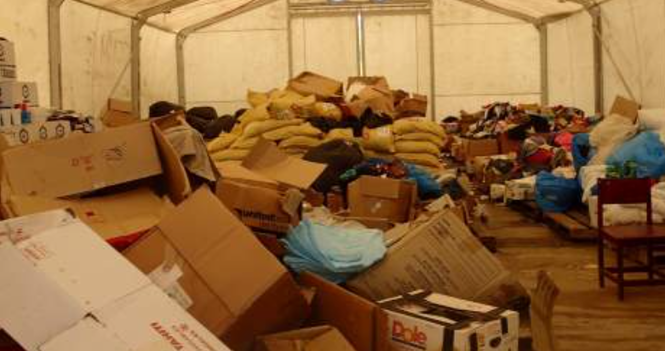
After a major disaster, international relief can mean the difference between life and death. People from all walks of life are increasingly gripped by these world events and inspired to help out. But sending the wrong goods contributes less to quick recovery than to confusion, waste and extra work, just when local responders are stretched to their limit.
A recent example of this was the aftermath of Cyclone Pam in Vanuatu in 2014, when the national Government accepted all offers of aid and donations due to the immense humanitarian need. The National Disaster Management Office agreed to serve as the consignee of donated items and to have the overall responsibility for unsolicited goods. This proved to be costly, time consuming and inefficient.
In 2007, the state parties to the Geneva Conventions adopted the “Guidelines on the domestic facilitation and regulation of international disaster relief which called on all states to “actively encourage members of the public interested in contributing to international disaster relief or initial recovery to make financial donations where possible or otherwise donate only those types of relief goods expressly requested by the affected State.” Last year, states revisited the issue in a renewed resolution on the management of international relief at the International Conference of the Red Cross and Red Crescent, which invited “National Societies and States to collaborate in disseminating information to the public about the most appropriate donations of goods in the wake of a major disaster and to discourage the shipment of unnecessary and unsolicited items.”
Following this suggestion, after Tropical Cyclone Winston struck Fiji in February, Peter Walton, Director of International Programs at Australian Red Cross, authored an article ‘Fiji doesn't need the shirt off your back’, informing the public on why donated goods are seldom solicited, rarely clear customs and often become landfill. Other social media materials, including a decision tree infographic were produced and circulated to explain the benefits of cash over donated goods.
The Australian Council for International Development and the New Zealand Red Cross also joined in to explain the costs associated with donated goods and drawing attention to considerations of equity, appropriateness, dignity and supporting local economies. The Australian Red Cross is also continuing its collaboration with the Pacific Regional Logistics Cluster, targeting air and sea freight providers and other key supply chain links.
Although it is difficult to discourage kindness, the Red Cross Red Crescent Movement has a responsibility to educate the public so that its kindness is channelled into appropriate streams of relief.